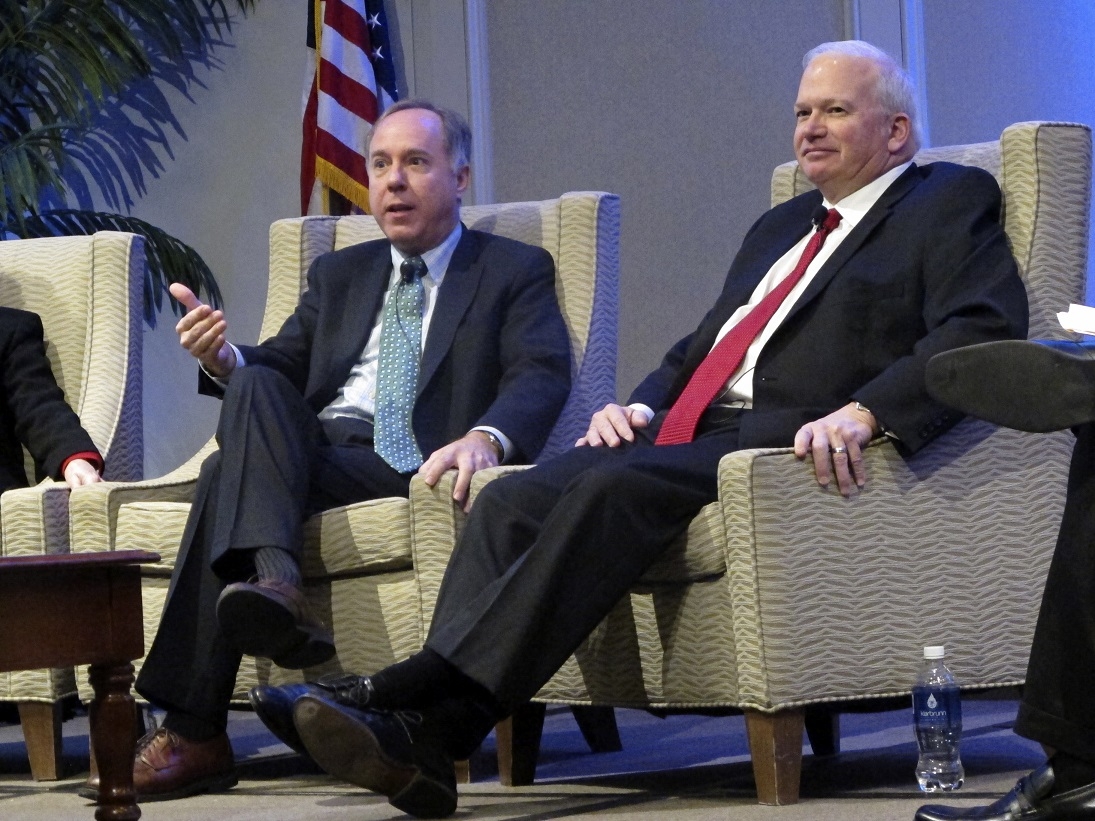Politics
Wisconsin Assembly Republicans outline priorities to Evers

MADISON, Wis. (AP) — Wisconsin Assembly Republicans delivered what they called a “gesture of our goodwill” to the newly installed Democratic governor on Thursday, outlining some areas where they think they might find common ground.
In a letter delivered to Gov. Tony Evers, the GOP lawmakers said they were trying to be helpful in detailing such areas, including an income tax cut, a school funding increase and a reduction in borrowing to pay for roadwork.
The move comes after Republicans convened a lame-duck legislative session following Evers’ November defeat of Republican Scott Walker to weaken the powers of the incoming Democratic governor and attorney general before they took office.
Republicans are also adding staff to prepare for possibly writing an alternative state budget to the one Evers will propose.
Still, Assembly Speaker Robin Vos insisted at a news conference Thursday that Republicans are looking for common ground with Evers.
To that end, he said Republicans in both the Senate and Assembly will hold an unusual joint meeting on Tuesday so they can speak privately with Evers.
“We know that we are in divided government. It’s different times,” Vos said. “This is a good faith effort for us to say we’re looking at what he promised, what we think we can deliver and find ways to be able to do that together.”
Evers’ spokeswoman, Melissa Baldauff, said Evers hopes Republicans will work with him to make progress on major issues such as health care access, transportation and education.
“However, actions speak louder than words,” Baldauff said in a statement.
The Republicans said the first bill they intend to pass is a state-level guarantee that people with pre-existing health conditions can’t be denied insurance, which is already guaranteed by the federal health care law that Republicans have strenuously opposed since its inception during Barack Obama’s presidency.
The Assembly passed a pre-existing conditions bill in 2017 but it died in the Senate and on Monday, Republican Senate Majority Leader Scott Fitzgerald said he didn’t want to “overpromise” by suggesting it would fare better this year.
Evers has many of the priorities outlined by the Republicans but supports different approaches to reaching those goals.
For example, he wants to cut income taxes by 10 percent but wants to compensate for it by reducing a tax break for corporations by $300 million, a move Vos said would amount to a “massive tax increase.”
The Republican letter did not put a dollar amount on how large of an income tax cut they would support or how it would be paid for.
Vos also opposes Evers’ call to expand Medicaid to cover about 75,000 more adults living just above the poverty line.
That move would actually save the state an estimated $180 million a year, but Vos has raised concerns about putting more people on assistance programs without also raising reimbursement rates for providers.
Evers has proposed increasing spending on K-12 education by 10 percent, or $1.4 billion. A bipartisan task force released a report last week that also called for significant increases in funding, but it did not say by how much.
Evers, that task force and Assembly Republicans all say they want the state to provide two-thirds funding for schools, which would increase overall state school aid by about $130 million a year.
Some of the other Republican priorities include:
— Enhancing high-speed internet access.
— Expanding the SeniorCare prescription drug program to cover flu shots.
— Working to reduce homelessness.
— Providing more options to reduce the cost of child care for working parents.
— Increasing access to clean water. Assembly Speaker Robin Vos earlier this month formed a clean water task force following reports of contaminated wells in southwestern Wisconsin.
— Investing more in state-owned properties.
— Doing more to attract and retain highly qualified state employees.





